Structure, belonging and a place to play
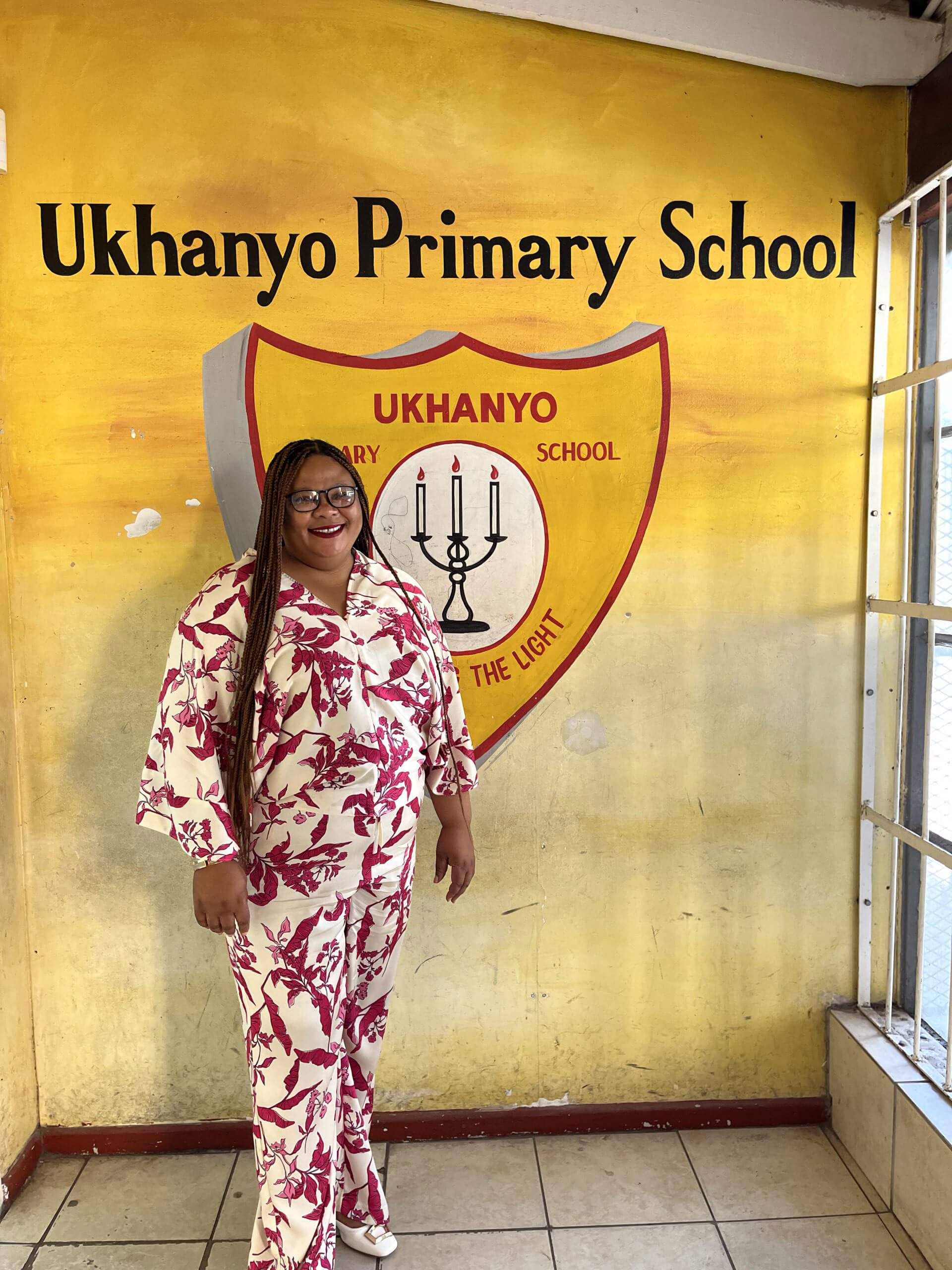
In South Africa, structured sport is helping students stay in school and succeed. Nicoletta Snellen, Africa Program Officer for the Judith Neilson Foundation, spoke with school leaders in the township of Masiphumelele about creating structured spaces for young people to find belonging and confidence through teamwork, mentorship, and shared goals.
In the township of Masiphumelele, children face daily challenges of poverty, high unemployment, overcrowded housing, and limited access to education and healthcare. These systemic issues can be compounded by fractured communities, where neighbourhood divisions run deep. For many adolescents, gang rivalries have become an everyday life. With few safe spaces or opportunities on the horizon, their futures can feel undefined, and the lure of gang involvement can become a dangerous alternative.
But at MasiSports, a different story is unfolding. Primary and secondary students are discovering the transformative power of game play. Through team-based games and structured activities, they’re learning skills in leadership, teamwork, conflict resolution, and collaboration. Together, these students are showing that even in the face of adversity, connection and consistency can help bring communities together, and that structured sport can be a path to stability and opportunity.
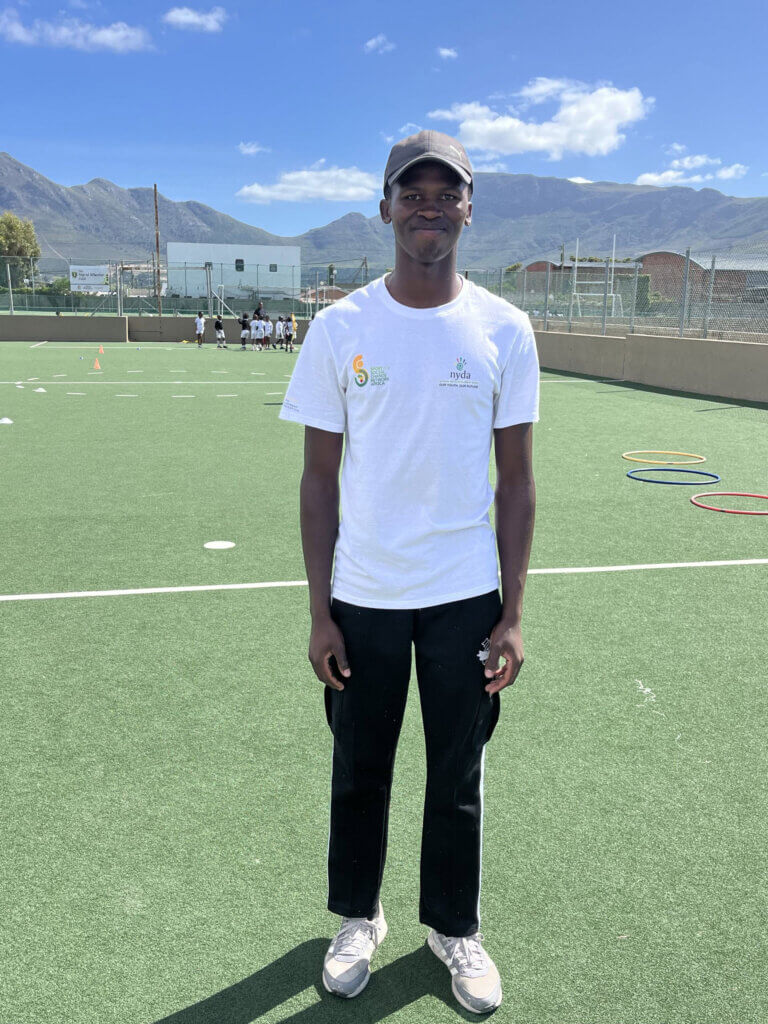
Building confidence and routine at primary school
Thozama Songwiqi, fondly known as ‘Toast’ by her students, is the Deputy Principal of Ukhanyo Primary School, where she has served for the past 23 years.
The school enrols 1,790 primary students, many of whom have recently relocated from the Eastern Cape in search of better employment opportunities. However, many parents remain unemployed, relying on social grants, while others work long hours as domestic workers. Toast estimates that fewer than 50% of parents here are currently employed.
Despite these challenges, there’s a growing sense of optimism at the school. The addition of new soccer and cricket fields has brought life and energy to the campus. “They’re not just beautiful,” says Toast, “they’re welcoming.”
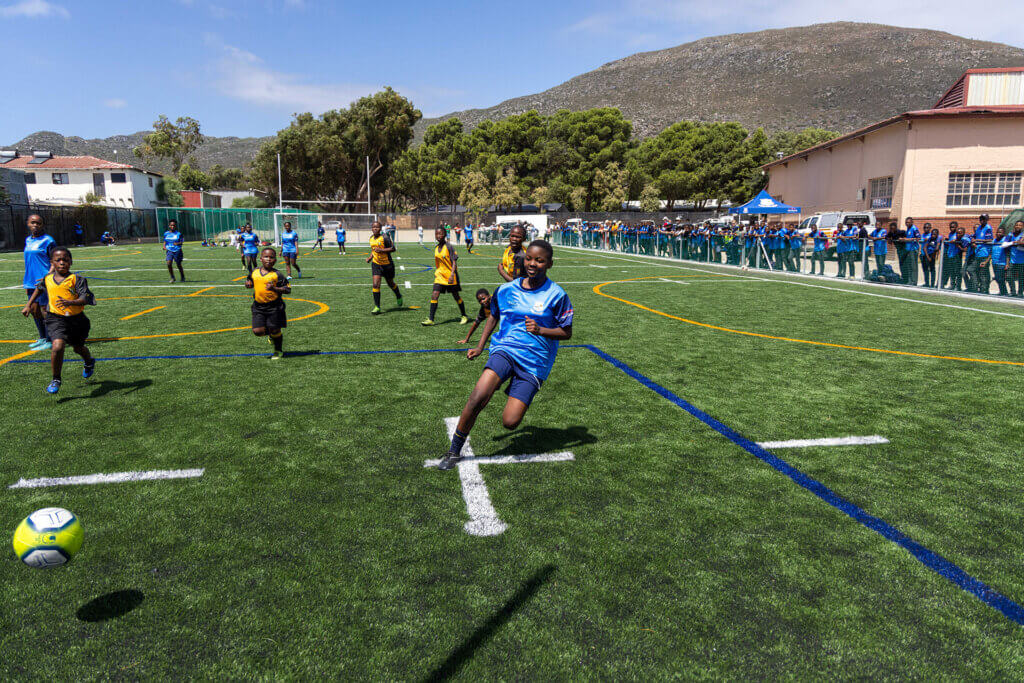
Physical education, led by MasiSports, has become a key part of the daily curriculum, with students joining in sports from Monday to Friday. Toast described the undeniable impact the sports fields have had on learners’ development, physically, emotionally and socially. “We’ve seen real improvements in discipline, a reduction in bullying, and fewer behavioural issues,” she says. “The Principal once had to deal with pages and pages of disciplinary cases, now there are only one or two.”
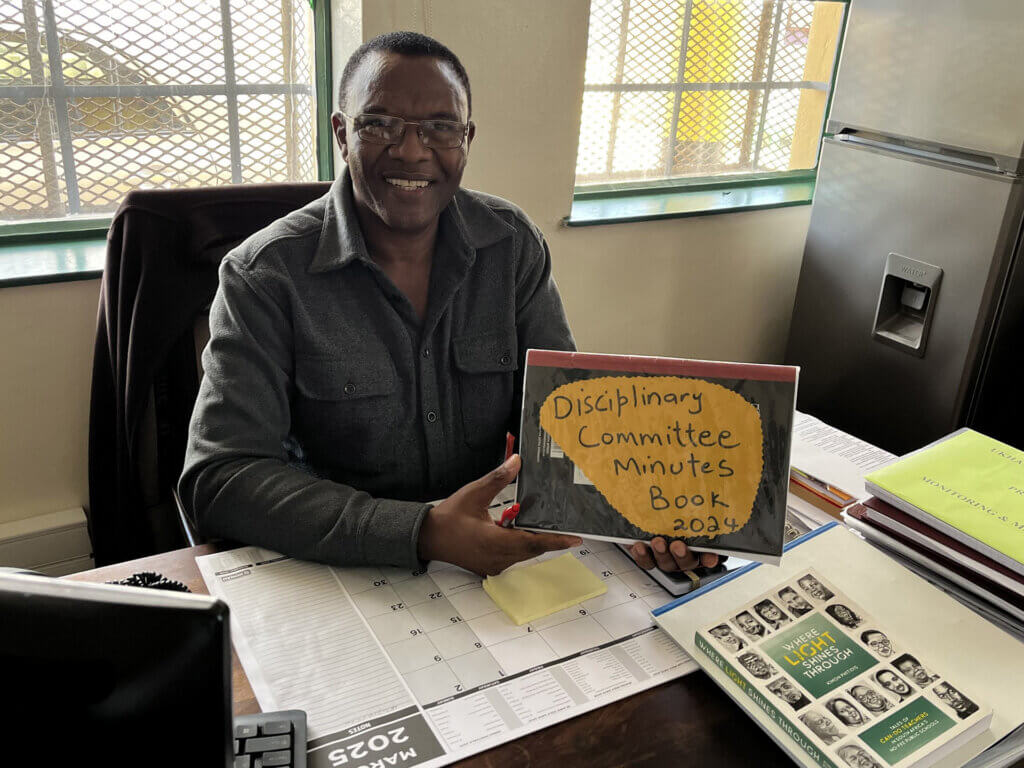
Keeping adolescents engaged and off the street
Just around the corner lies Masiphumelele High School. Here many students face gang influence and community violence. School Principal Michael Tyhali reflects on these challenges, noting that in recent years, many students have dropped out due to gang involvement. But things have started to change since the introduction of the MasiSports curriculum.
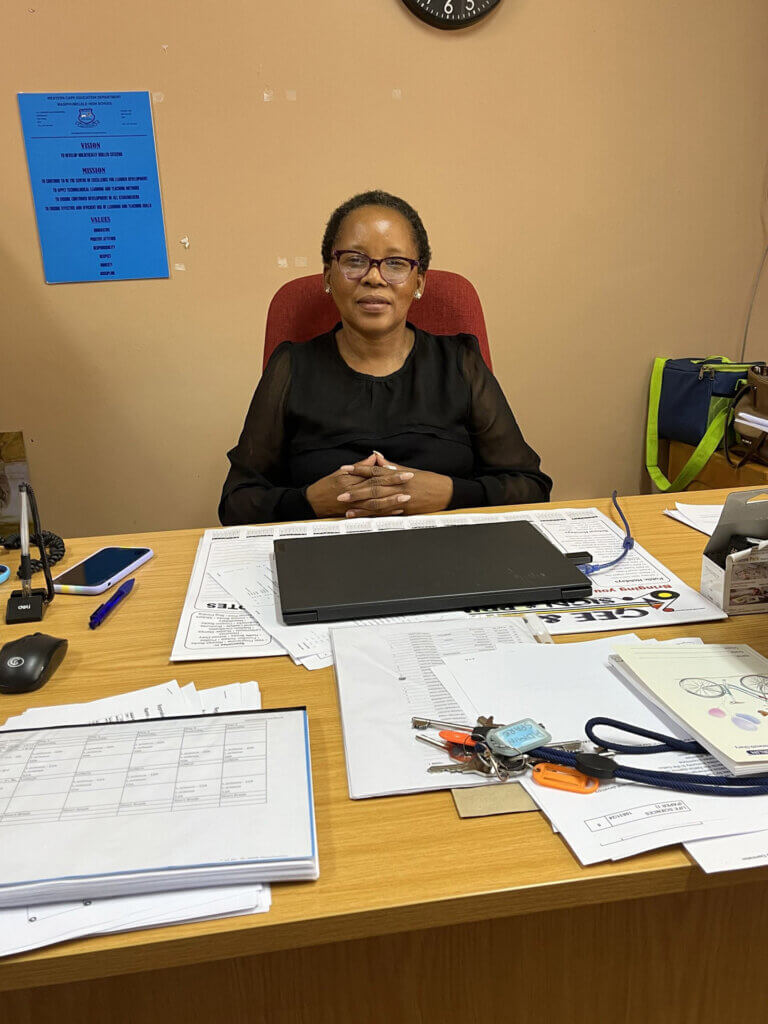
“Since the launch of the sports program, we’ve seen a 25% increase in student academic performance,” says newly appointed Principal Skahle Nhlabathi. “The MasiSports coaches work hand in hand with our educators, giving our teachers more time to focus on academic support.”
Gang influence in Masiphumelele is deeply entrenched. “It’s a small community,” she says. “Gang recruitment happens easily, and we’ve seen a lot of student conflict arising from this. Three of our learners lost their lives to gang violence last year.”
The introduction of MasiSports has brought a shift in school culture and created space for healthy competition and school spirit. “Now they have something to do after school instead of turning to crime,” she says. With sports sessions running from 3-6pm, she says that students remain engaged in a safe environment during these critical hours when their parents are still away at work.
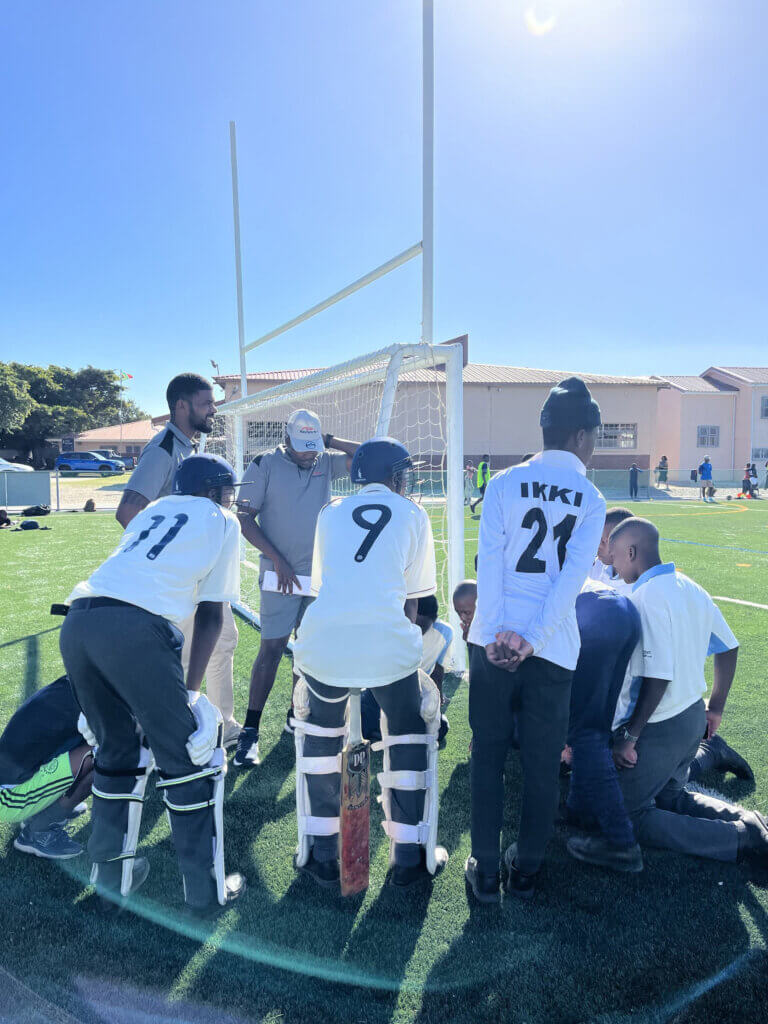
For learners who struggle academically but thrive through physical engagement, the program has been a turning point. “Learner attendance has increased, and dropout rates have gone down,” she says.
Investing in young people’s futures
As Africa’s youth population grows, with half the continent’s people anticipated to be under 25 by 2050, the question is not just how to educate more students, but how to get them prepared for what comes next. Structure, belonging, and a place to play are essential foundations for youth development and community cohesion. Combining education with sports and life skills, MasiSports is helping to create structured spaces for young people to learn discipline, purpose, and accountability. In these safe spaces, they also find belonging through teamwork, mentorship, and shared goals, building confidence and connection. The simple act of having a place to play becomes a powerful tool for equity in Cape Town, giving every child a chance to thrive regardless of their background.